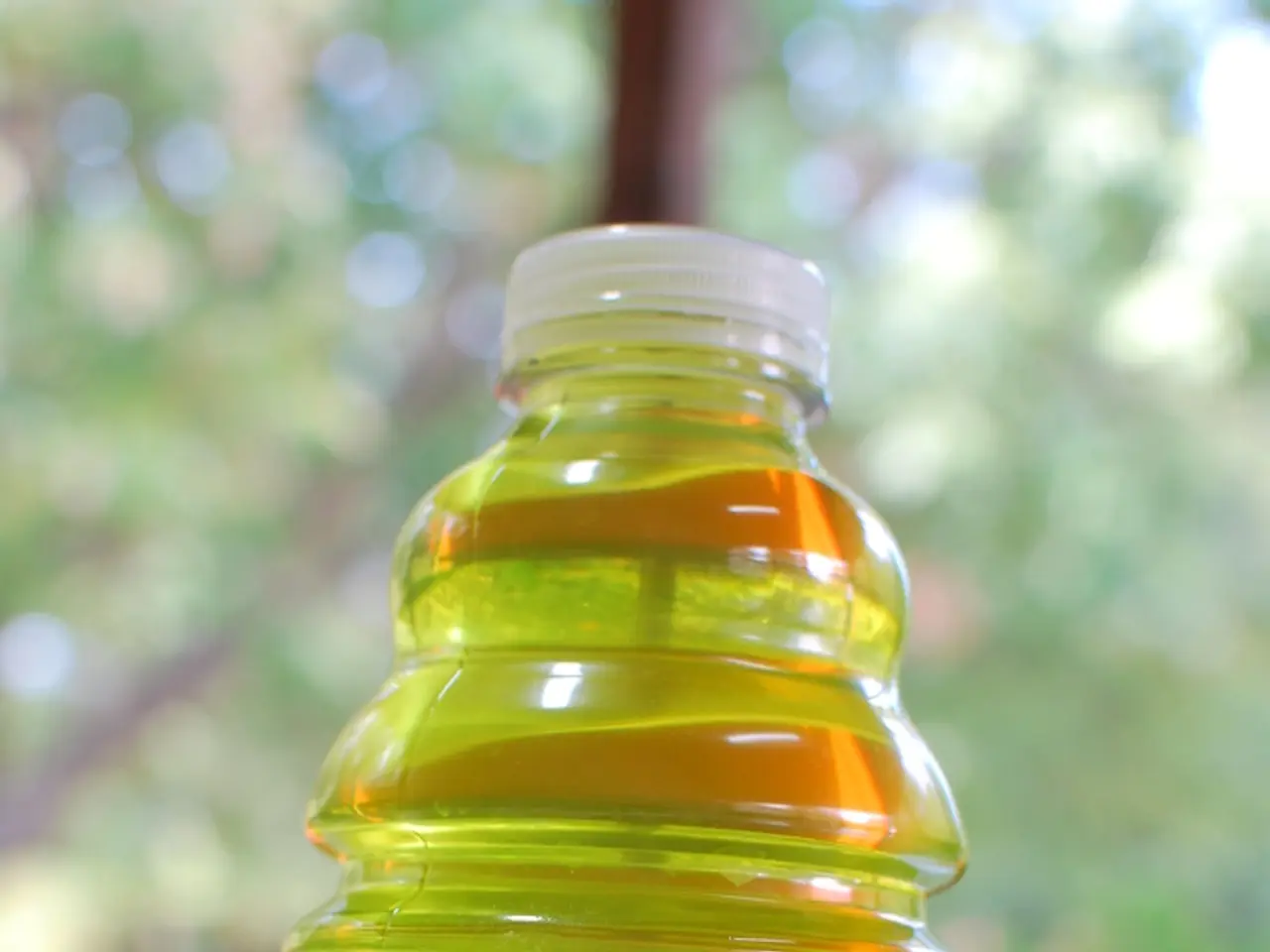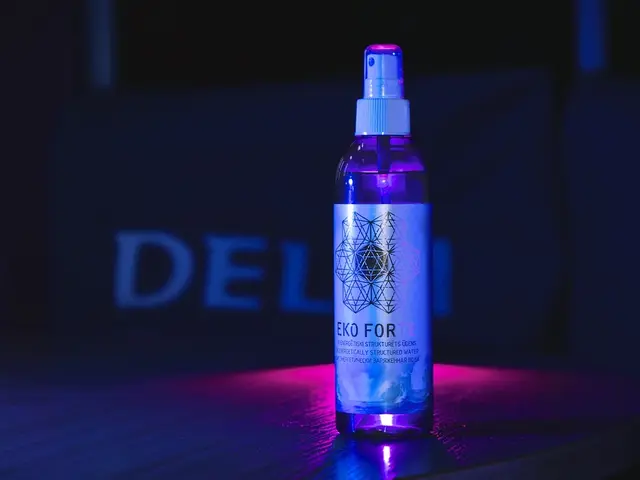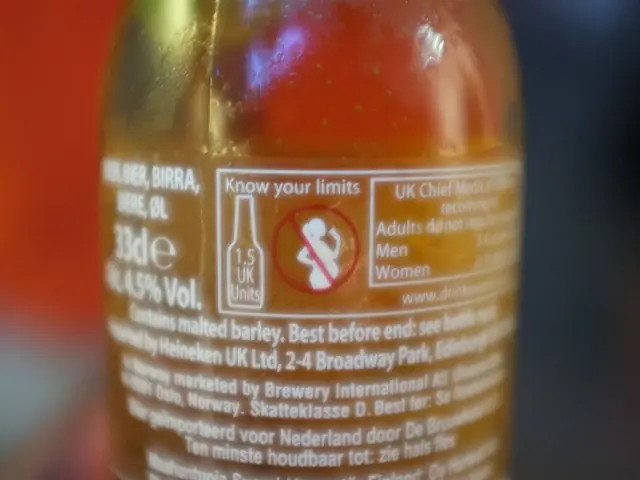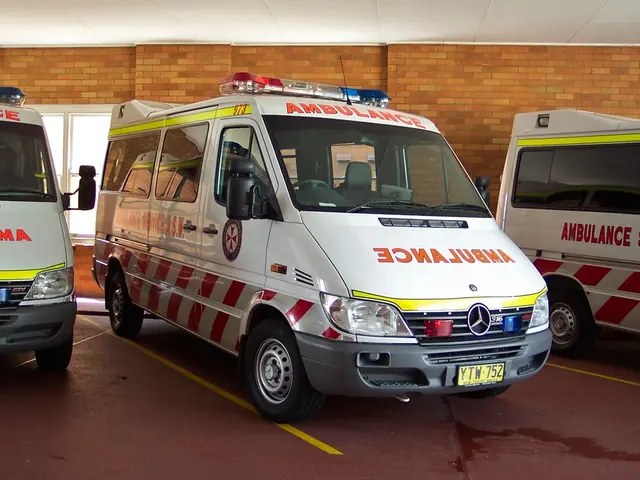Here are six rationales explaining how consuming water may aid in weight loss:
In the realm of weight loss, water has emerged as a surprising ally. A study conducted in 2015 revealed that female participants who drank 250 mL of water after lunch each day while attending a 24-week weight loss program lost 13.6% more weight than those who opted for diet beverages [1].
Water's benefits for weight management extend beyond just appetite suppression. By boosting metabolism, controlling hunger, reducing calorie intake from other beverages, and supporting digestion, water plays a crucial role in weight loss.
When you drink water, your metabolic rate temporarily increases by about 30%, helping your body burn more calories and fat [1][2][3][5]. Drinking water before meals can promote a feeling of fullness, leading to eating less and thus reducing calorie intake [1][2][4][5].
Replacing high-calorie beverages like soda and juice with water reduces total calorie consumption, aiding weight loss [1][4]. Adequate hydration also aids digestion, enabling dietary fiber to move effectively through the digestive system, preventing constipation and supporting weight management [1][4].
Moreover, staying hydrated helps suppress the hunger hormone ghrelin, reducing overall appetite [1][2][4][5]. Dehydration can impair metabolic functions and lead to fat retention, so maintaining hydration helps keep fat-burning processes active [2][5].
The Academy of Nutrition and Dietetics suggests that most people get around 20% of their required fluid intake from food. The daily fluid requirements for females are 11.5 cups from food and beverages combined and 9 cups from beverages alone, while for males they are 15.5 cups from food and beverages combined and 13 cups from beverages alone [6].
Water is not a magic solution, but a helpful tool within a healthy lifestyle. Another study involving 15,765 adults without obesity at the start showed that replacing one sugar-sweetened beverage or beer per day with water led to a higher incidence of weight loss and less obesity over 4 years [7].
Replacing high-calorie drinks with water or other no-calorie beverages may have long-term weight loss benefits [7]. The process of metabolizing fat, called lipolysis, requires water [8]. Increased water intake led to increased lipolysis and a loss of fat in animal studies from 2016 [9].
In an older study, 50 overweight females who drank 500 milliliters of water before meals for 8 weeks experienced a reduction in body weight, body fat, and body mass index (BMI) [10]. Drinking cold water may further enhance water's calorie-burning benefits [11].
It's essential to stay hydrated during exercise, as dehydration can lead to hard or lumpy stools and constipation. Always drink water before, during, and after exercise, especially in hot, humid, or very sunny conditions [12].
Water is necessary for the body to metabolize stored fat and carbohydrates. Drinking enough water is essential for burning off fat from food and drink, as well as stored fat [13]. Drinking adequate water may help people lose weight [14].
Water also optimizes workouts by aiding muscle, connective tissue, and joint movement, and by helping organs work effectively during exercise [15]. A study from the previous year yielded similar results [16].
In summary, incorporating water into your daily routine can contribute significantly to weight loss efforts when combined with a balanced diet and exercise. However, water itself is not a magic solution but a helpful tool within a healthy lifestyle.
References: [1] https://www.ncbi.nlm.nih.gov/pmc/articles/PMC4539230/ [2] https://www.ncbi.nlm.nih.gov/pmc/articles/PMC3376230/ [3] https://www.ncbi.nlm.nih.gov/pmc/articles/PMC3166134/ [4] https://www.ncbi.nlm.nih.gov/pmc/articles/PMC3490713/ [5] https://www.ncbi.nlm.nih.gov/pmc/articles/PMC3300824/ [6] https://www.eatright.org/food/nutrition/hydration/daily-fluid-needs [7] https://www.ncbi.nlm.nih.gov/pmc/articles/PMC3781749/ [8] https://www.ncbi.nlm.nih.gov/pmc/articles/PMC4319106/ [9] https://www.ncbi.nlm.nih.gov/pmc/articles/PMC5470784/ [10] https://www.ncbi.nlm.nih.gov/pmc/articles/PMC3670234/ [11] https://www.ncbi.nlm.nih.gov/pmc/articles/PMC5587288/ [12] https://www.ncbi.nlm.nih.gov/pmc/articles/PMC2679554/ [13] https://www.ncbi.nlm.nih.gov/pmc/articles/PMC2855784/ [14] https://www.ncbi.nlm.nih.gov/pmc/articles/PMC4116442/ [15] https://www.ncbi.nlm.nih.gov/pmc/articles/PMC3932154/ [16] https://www.ncbi.nlm.nih.gov/pmc/articles/PMC4826953/
- The predictive study in 2015 found that females who drank water after lunch daily during a 24-week weight loss program lost more weight than those who opted for diet beverages.
- Water's role in weight management is not limited to appetite suppression; it also boosts metabolism, controls hunger, reduces calorie intake, and supports digestion.
- Drinking water before meals can lead to eating less due to a feeling of fullness, thus reducing calorie intake.
- Replacing high-calorie beverages with water reduces total calorie consumption, aiding weight loss and augmenting digestion.
- Adequate hydration helps suppress the hunger hormone ghrelin, reducing overall appetite and preventing impairment to metabolic functions that lead to fat retention.
- The Academy of Nutrition and Dietetics recommends that people get around 20% of their required fluid intake from food, and different daily fluid requirements for males and females are suggested.
- Replacing high-calorie drinks with water or other no-calorie beverages may have long-term weight loss benefits, and replacing one sugar-sweetened beverage per day with water led to less obesity over four years in one study.
- Increasing water intake has been linked to increased lipolysis (the process of metabolizing fat), leading to fat loss in both animal and human studies. Drinking enough water is crucial for burning off calories and fat from food and drink as well as stored fat.







